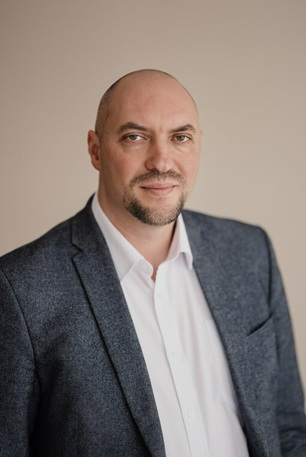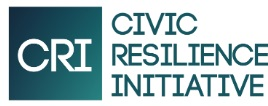We spoke with Dr. Viktor Denisenko, Associate Professor at the Centre for Journalism and Media Research, to gain insights into how Lithuania can strengthen inter-ethnic relations, reduce stereotypes, and build resilience against disinformation.
How do you think disinformation affects the identity and integration of the ethnic Russian community in Lithuania?
There are multiple ways to approach this question. First, it’s important to note that the Russian or Russian-speaking community in Lithuania is not homogeneous. From a political standpoint, the integration process should have begun 33 years ago when Lithuania regained its statehood. However, around the same time, roughly 30 years ago, the Kremlin's propaganda efforts also started taking root in Lithuania. Although it was not a very large-scale activity at the beginning, it was an attempt to exploit the sensitivity of the Russian or Russian-speaking community in Lithuania and the integration problems.
Initially, these efforts were not particularly large-scale, but they aimed to exploit the sensitivities of the Russian-speaking community and the challenges of integration. The propaganda narrative has long focused on portraying Russian speakers as second-class citizens, claiming they suffer discrimination, such as limited access to public services in Russian or restrictions on using the language in public life. This rhetoric about alleged violations of Russian speakers’ rights has been circulating since at least 1993-1994.
What are your thoughts on Lithuania's policies regarding ethnic groups, such as language laws and the education system?
I think that for a long time, there was a belief in Lithuania that integration efforts were unnecessary and that everything was fine as it was. Even the Department of National Minorities was abolished, which was only restored after the events in Crimea in 2014 when it became clear that Russia could use some of the ethnic minorities to strengthen its influence. Since then, the attitude towards these minorities has perhaps become too sensitive, with ethnic groups sometimes being demonized and automatically considered as points of penetration of Russian influence into Lithuanian society. This attitude, of course, sometimes goes to extremes, which is certainly not helpful.
Regarding education, this is a complex issue. I notice some misunderstandings when it comes to the so-called Russian schools. In fact, these are Lithuanian schools where part of the lessons are taught in Russian, and this language no longer plays such an important role there. One challenge is that some older teachers may be less critical of certain narratives. I have heard of a few cases of teachers repeating Kremlin propaganda narratives, but these were isolated cases and certainly not a mass phenomenon.
A major issue in Lithuania is the overall shortage of teachers, which is even more pronounced in schools serving national minority communities. Addressing this requires training young, critical-thinking, and civically engaged teachers who can contribute to the integration process.
What are your recommendations for strengthening inter-ethnic relations, reducing stereotypes, and building resilience against disinformation?
I have always believed that national identity should be emphasized over ethnic identity. Ethnic minorities in Lithuania are, first and foremost, Lithuanian citizens. The key is ensuring they feel a sense of loyalty and belonging to the state. I am not suggesting that they lack loyalty, but experiences within the Russian-speaking community vary widely. Many individuals have fully integrated into Lithuanian society, and I speak from personal experience, coming from a Russian-speaking family myself. However, some people remain influenced by external narratives or feel dissatisfied with their social standing.
The goal should be to build a unified and civic-minded Lithuanian society where ethnicity is not the defining characteristic of a person's identity. Those who wish to maintain their cultural heritage should be encouraged to do so, as the Lithuanian Constitution and other laws fully protect this right. However, the foundation of identity should be the understanding that Lithuania is the home of all its citizens.
We have no alternative but to ensure Lithuania remains an independent democracy. A shared national goal can serve as a powerful unifying force, helping to integrate those who may feel marginalized. It is essential that every citizen feels they belong in this country.
 Photo: Dr Viktor Denisenko, Vilnius University (photo provided by CRI).
Photo: Dr Viktor Denisenko, Vilnius University (photo provided by CRI).
Dr Viktor Denisenko is an expert in information warfare and propaganda, currently serving as the Head of the Centre for Communication Influences and Propaganda Research at the Faculty of Communication, Vilnius University. He is also an Associate Professor and a researcher of propaganda phenomena and information warfare. Dr Denisenko is the author of the book In the Encirclement of Propaganda (2021, in Lithuanian, Vilnius University Press).

